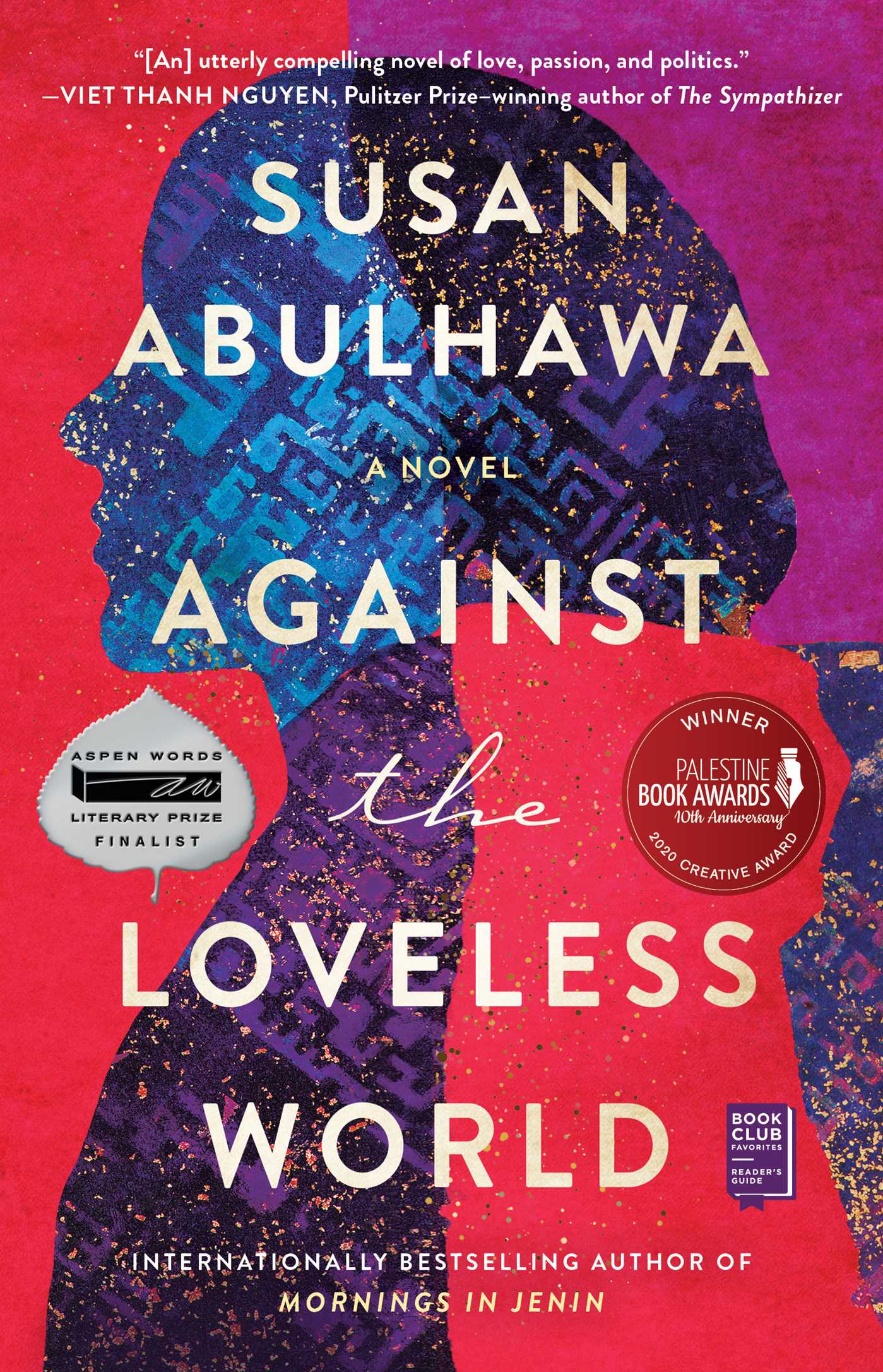The Bookest
Against the Loveless World
Published Jan 30 2023

Susan Abulhawa’s Against the Loveless World is a striking, beautiful, and heartbreaking story, and possibly one of the best books I’ve ever read, about a young Palestinian girl, Nahr, and her family who become displaced from their home in the 1980s. Though Nahr’s story is rife with struggle, her, her family, and all of the displaced Palestinian community’s ultimate revolutionary act is to choose to find happiness and joy in small ways despite the “loveless world’s” ceaseless attempt to take everything from them.
The story begins with Nahr in “the cube,” a prison cell. Each chapter begins with a description of a section of the cube, Nahr’s whole world when the reader is introduced to her. After this initial introduction, the reader is quickly moved into Nahr’s past as a young girl in Kuwait. Nahr is a Kuwaiti-born Palestinian, one of the many who never even knew her home land. Yet, knowing full well that Kuwait and the surrounding world at best tolerate her people and at worst work to actively extinguish them through poverty, bombings, or military control. In Kuwait, it’s poverty. At 19, Nahr marries a man named Mhammad—the brother of a famous Palestinian revolutionary, Bilal. Nahr’s friends were drawn to him, but Mhammad chose her. They quickly married for a short time until Mhammad leaves Nahr, and she eventually has to return to her mother’s home with the shadow of being unable to keep a husband.
One day at a wedding, Nahr’s famous captivating dancing catches the eye of Um Buraq, a woman that will change Nahr’s life forever by providing her with money but also the path of “corruption.” Um Buraq circles Nahr’s life after their first meeting until one day Nahr gives in. Meeting Um Buraq at her home, she finds a few other young women already dressed in tight fitting clothes and heels. Um Buraq gives a similar outfit to Nahr, and Nahr loves the way her body looks in her red dress. After trying whisky for the first time, Nahr, Um Buraq, and the two other women join a few rich men for an evening. Nahr dances and enjoys the freedom that is so different from her normal life. Until one of the younger men isolates her outside, sexually assaulting her. During the violence, Nahr is deeply cut by a piece of glass in the sand where they lay. Nahr wants nothing to do with Um Buraq after she heals. She just wants to be normal, return to the life she had before Mhammad. But, Um Buraq pays her the same amount of money for one evening than Nahr would make in a whole month. So, Nahr is inevitably pulled into this life that pays well, gives her some freedoms, allows her to support her family, and send her brother to the university at the cost of her self. This money also helps her free her brother after he’s wrongfully imprisoned and Um Buraq eventually helps her escape Kuwait for Amman, Jordan when Kuwait is no longer safe for Palestinians during Saddam Hussein’s rule and the Gulf War, “But I know now that going from place to place is just something exiles have to do. Whatever the reason, the earth is never steady beneath our feet,” rationalizes Nahr.
In Amman, Nahr is free from her life in Kuwait, “I have to become another person, someone at the other end of disgrace, rape and exile,” but she doesn’t have a way to make money and lead the household any longer, so her mother and brother take on this load while Nahr sinks into a depression until she focuses on her doing hair, nails, and facials. Eventually, Nahr’s brother convinces her to finally get a divorce from Mhammad so she can move on. With her Palestinian visa, she visits her homeland and meets Mhammad’s family for the first time while staying with them through the divorce. While there, she gets close to Bilal, Mhammad’s brother and a famous Palestinian hero, and learns about and becomes involved in the Palestinian revolution. After her time in Palestine, Nahr ends up marrying Bilal, “As our kiss deepened, became more expressive, thirstier, I was overcome by a desire to weep. No one had ever kissed me with such love, and it occurred to me that happiness can reach such depths that it becomes something akin to grief.” They spent the few months of their marriage under heavy curfew until Bilal and a few other Palestinian fighters orchestrate small attacks against the Israelis. Causing Nahr to be caught, sentenced for terrorism, and imprisoned in The Cube for 16 years.
When Nahr is finally released, she’s in her 40s and returns to her mother and brother in Amman because Bilal had been thought dead or hiding for those 16 years. Nahr’s grandmother had long died. Um Buraq was dying. Like in those years before, Um Buraq was the only one who could save Nahr, and she did. Bringing Nahr back to the world that she was released in, “Bitterness is hard to keep away. Um Buraq sighs, flashing the gap in her teeth. ‘It sure is a beautiful world, though,’ she says, surveying the grandeur of our planet, knowing her days are few.” And, this is the overwhelming beauty of Abulhawa’s book: Perhaps the greatest revolutionary acts are to keep fighting, keep loving, keep finding beauty in the lovingly loveless world.